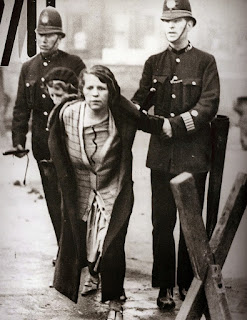armchair quarterbacks...who are they? or maybe rather Why are they?
- folks who played the game when they were younger and live vicariously now through the players on the field...feeling a lack or loss in their current circumstances
- folks who feel their dreams were thwarted by bad deals (if only X...I'd be playing for the NFL right now)
- folks who never played but think they are masters at anything they observe
- folks who never played and enjoy telling people off ... or what to do... from the safe distance of one-way relationships
- folks who never played and are, in general, superior to most other folks on the planet
- folks who currently play the game ... but not THIS game or not at THAT level and feel excluded, shunned or otherwise inappropriately disregarded
- folks who need an enemy - someone to rail against, someone upon which they can project conscious and subconscious bias, prejudice, and as a result also fear(s).
There are a couple of other who/whys I can think of that are actually kind of cool-
- folks who currently play the game and just enjoy the game
- folks who played the game in the past and enjoy it being played by current athletes
- folks who enjoy the game and like to enjoy it with friends (and all the banter that comes with hanging with friends)
The above descriptions apply regardless of industry.
With a nod to full disclosure, I have watched a video clip of instruction (online) and had my own comments to make both positively and negatively. Sometimes I have to force myself to remember I'm watching a piece of a bigger picture that has a 50/50 shot of being presented completely out of context. Particularly if I'm on a soapbox at the moment.
I have watched some things executed from start to finish and cringed at the fucked up physics or at language that says "this will always work, no matter what, if you do it correctly".
I like the phrase my colleague and friend Randy King uses: don't worship at the altars of Always and Never. Or something like that. I like it a lot so that's one of my hot buttons.
What I find interesting...annoying...and sometimes pissed-off worthy is when an armchair quarterback from the self-defense industry comments on a thing and there is an obvious assumption s/he knows everything about the situation they a) were not in attendance for b) have not asked any questions about c) have been wrong about said assumptions in the past d) is uninterested in inquiring beyond the pontification and e) has the opportunity to talk to the person/situation in question while making zero effort to do so.
Armchair Quarterbacks in football don't bug me. I understand the passion of the game but I don't see football as addressing personal safety - as the point of the industry. I don't see football Armchair QBs attempting to undermine good people trying to help other people be strong(er). I'm guessing it happens, I just don't hear about it. Not my industry.
And I get too, this is just what human monkeys do. And we all do it periodically. At the end of it though, ultimately, when I see AQBs in the self-defense industry and I get past my own monkey reactions - I am left with sorrow.
If you teach or train in self-defense and you are authentically involved in this avocation because you want the people you care about to be safer, strong people - what value do you add by attacking colleagues?
What frightens you enough to attack, deride, denigrate rather than engage, inquire and discover? What value - or - how useful is this action toward the goal of creating physical and emotional strength?
There are plenty of ideologies to get worked up over out there in the reals. If we all want the same thing (safe, stronger, healthier people we care about) and our actions are divisive, we care about something MORE than we care about safer, stronger people. It's not that we don't care AT ALL about safer, stronger people. It's that our needs for status, dominance, power, authority, recognition etc. are MORE important to us than the goal of strong -healthy people.
Competing agendas. What wins out evidences in our actions and exposes that to which we are most committed.
Something to think about...
...and I am by no means immune.
















